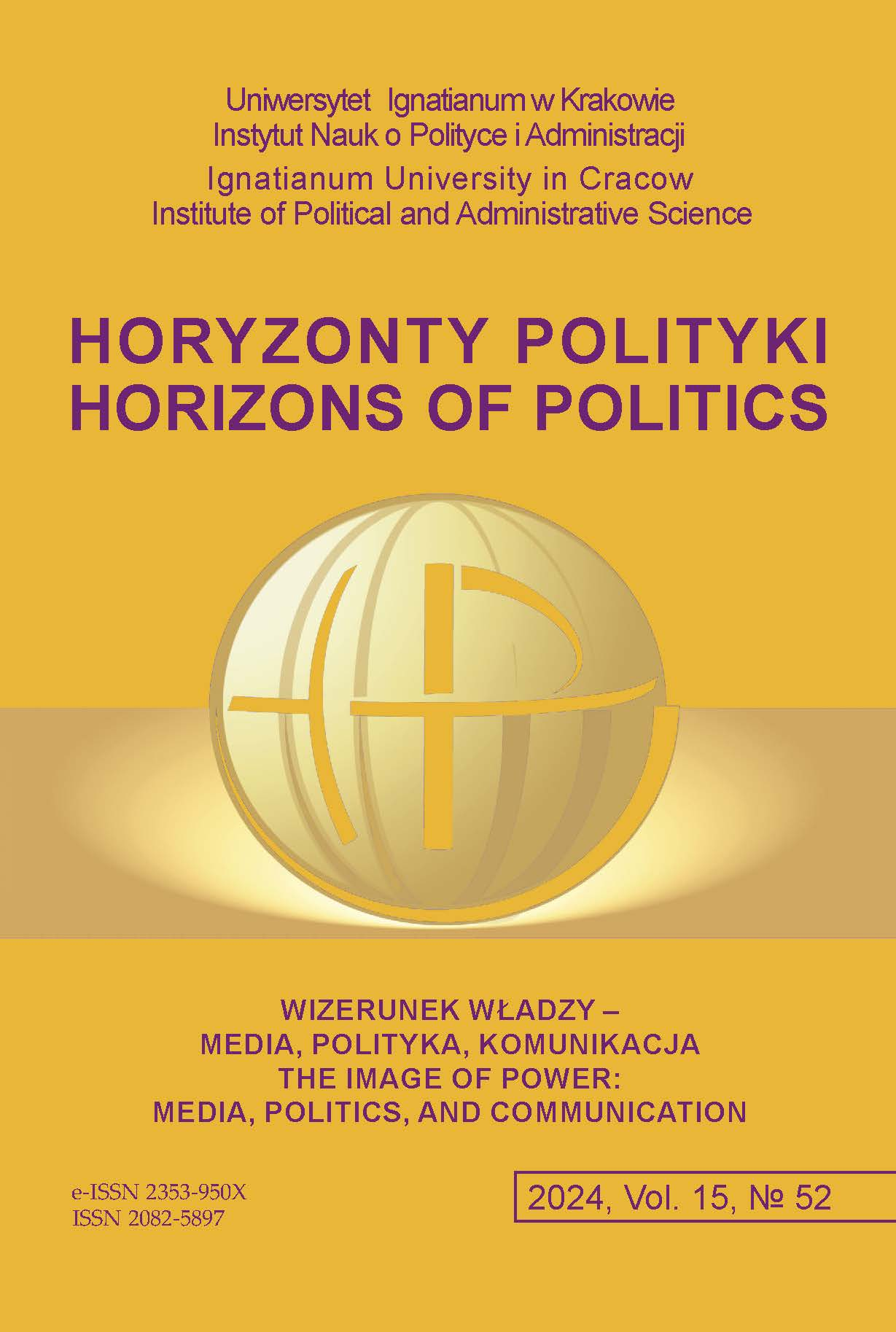Identyfikacja i analiza przemocy wobec polskich polityków w postach na Twitterze
IDENTIFICATION AND ANALYSIS OF VIOLENCE AGAINST POLISH POLITICIANS IN TWITTER POSTS
Author(s): Katarzyna Raca, BARBARA KIJEWSKASubject(s): Politics, Social Sciences, Media studies, Political Theory, Communication studies, Politics and communication, Politics and society
Published by: Uniwersytet Ignatianum w Krakowie
Keywords: politicians; Poland; Twitter; text mining; political violence
Summary/Abstract: RESEARCH OBJECTIVE:To determine the incidence and characteristics of violence against politicians on the social media platform Twitter (now X), considering gender differences.THE RESEARCH PROBLEM AND METHODS:Research on political vio‑lence is mainly concerned with physical assaults and focuses on armed conflict or regime change. Widespread access to the Internet has ushered in a new dimension of violence, manifested in hateful and aggressive actions often directed at public figures. Text mining and artificial intelligence methods were used in this study.THE PROCESS OF ARGUMENTATION: In the first part of the article, the problem of violence against politicians is discussed, followed by a presenta‑tion of the data collection and processing methods, together with the rationale for the choice of the analysis model. The remainder of this article analyzes the collected material and cnclusions.RESEARCH RESULTS:The study did not confirm the presence of violent content in the posts of tagged politicians but revealed that almost a quarter of the tweets contained pejorative content disparaging and devaluing politicians. Although the frequency of negative comments was similar for female (24%) and male (23%) politicians, there were differences in their nature. Negative comments focused on the intellectual capacity of politicians regardless of gender. CONCLUSIONS, INNOVATIONS, AND RECOMMENDATIONS:This study confirms gender differences in the pejorative comments associated with traditionally assigned gender roles. Insults directed at women referred to their private lives, sexualization, and objectification, while negative comments directed at men referred to politicians’ intentions and agency. The research con‑firms the brutalization of language in the public sphere, with the utterances in question balancing between acceptable criticism and defamation or insult. The re‑sults of the study can be used to assess the emotions and opinions of the public on social media regarding specific individuals in the ruling parties.
Journal: Horyzonty Polityki
- Issue Year: 15/2024
- Issue No: 52
- Page Range: 145-165
- Page Count: 21
- Language: Polish

